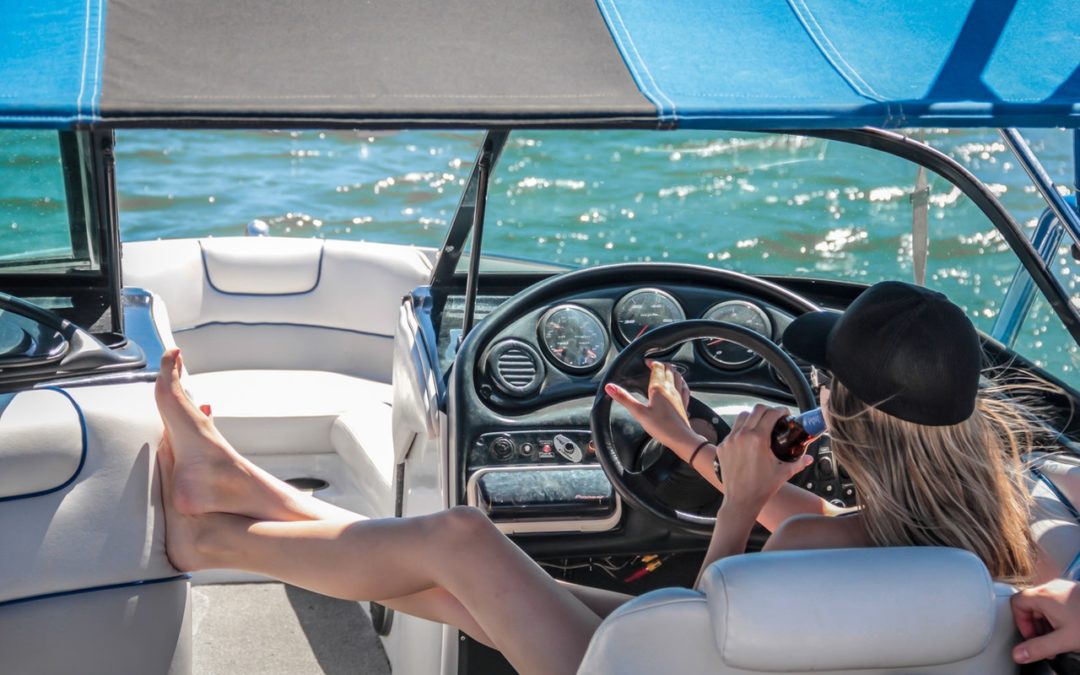Boating While Intoxicated In Denton & North Texas
Texas summer is here, and with many Texans returning to the water for fun and recreation, it is important to understand that intoxication offenses can still occur on the water. During the summer months, law enforcement cracks down on boating while intoxicated offenses. These arrests are particularly common on holiday weekends, such as Fourth of July and Labor Day, where boating and alcohol are likely to mix. The consequences for a boating while intoxicated offense are nearly identical to that of a DWI/DUI.
Boating While Intoxicated Penalties
A first time boating while intoxicated conviction will likely result in the following punishment: Up to 180 days of jail time and a fine up to $2,000. It is important to note that in a boating while intoxicated charge, unlike a DWI or DUI, a Blood Alcohol Content (“BAC”) level above .15 will remain a Class B misdemeanor. One thing that does remain the same to a DWI or DUI punishment is that prior alcohol related offenses can result in an enhanced punishment of a Class A misdemeanor for one prior offense and a third degree felony for two or more convictions.
Boating While Intoxicated is Different than Tubing or Floating While Intoxicated
In addition to boating, many Texans enjoy other water activities such as tubing or floating on many of the rivers throughout the state. Mixing these activities with alcohol may only result in a lesser, alcohol related charge such as minor in possession or a violation of open container laws. The charge becomes more serious when a boat is involved. Specifically, Chapter 49 of the Texas Penal Code defines a boat as “[a] vessel, one or more water skis, an aquaplane, or another device used for transporting or carrying a person on water, other than a device propelled only by the current of the water.” This means a boating while intoxicated charge can occur on a number of vessels such as a jet ski, canoe, or kayak.
The Safety Check Trap
A routine part of boating in Texas has become dealing with law enforcement performing a safety check or inspection of your boat or vessel. This inspection of your vessel’s safety equipment, however, is generally a ruse to board your vessel and then ask you about the amount of alcohol you have consumed. The officers will likely ask you to perform a few non-standardized tests to gauge intoxication and will then ask you to move your boat to shore. Once on land, the officers will likely have you wait 15 minutes to get your equilibrium and will then conduct roadside tests, which are the same, standard field sobriety tests used in DWI/DUI arrests.
Boating While Intoxicated and Implied Consent
It is important to understand that the implied consent law applies to boating while intoxicated the same way it does to a DWI or DUI. The implied consent law in Texas states that, if you are arrested by an officer who has probable cause to believe you have been driving while intoxicated, you automatically consent, through operation of your motor vehicle, to one or more chemical tests to measure your BAC. As with a DWI/DUI, the choice you make about whether or not to refuse the chemical test will result in major consequences to your driver’s license. If you refuse to provide a breath or blood specimen, your license or privilege to operate a motor vehicle will be suspended for 180 days. If you submit to a chemical test and your BAC is over .08, your license will be suspended for 90 days.
The Affect of a Boating While Intoxicated Charge on a Commercial Driver’s License
If you have a commercial driver’s license (“CDL”) and you refuse the breath or blood test or you are found to have a result above .08, your CDL will be suspended for 1 year. Suspension of your CDL will likely result in loss of any job that requires a CDL as a condition of employment.
You do, however, have 15 days after your arrest to request an Administrative License Revocation (“ALR”) Hearing, which may allow you to keep your CDL if certain circumstances and requirements are met. It is crucial to have experienced and effective boating while intoxicated counsel to represent you at this hearing so there is a better chance of keeping your license and so your attorney can use this hearing to gather important evidence for your underlying case.
At the Peugh Law Firm, we know how to navigate the troubled waters of a boating while intoxicated charge. Contact us today to find out how we can help you!





